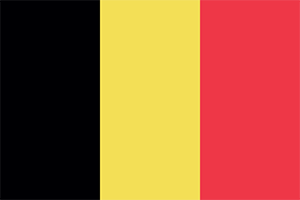- How the official decision of SEN relates to the agreed EASIE operational definition
- Criteria for an official decision
- Proxy indicator(s) used
- What is meant by 'out of formal education'
- Private sector education
- Pupil age ranges
How the official decision of special educational needs (SEN) used in the country relates to the agreed EASIE operational definition
An official decision leads to a pupil being recognised as eligible for additional educational support to meet their learning needs.
Pupils’ legal entitlements under what legislation
The legal basis is the Decree of 3 March 2004 for special education.
How additional support is understood within the country context
Additional support is multi-faceted, consisting of teacher periods, multidisciplinary support (physiotherapists, speech therapists, psychologists), school transport, etc.
The criteria for an official decision are:
There has been an educational assessment procedure involving a multi-disciplinary team
The multi-disciplinary team includes members from within and external to the pupil’s school
There is a legal document which describes the support the pupil is eligible to receive and which is used as the basis for planning
Please refer to the Belgium (French speaking community) website on special education.
Enrolment in a school or special education institution requires a report describing the type and level of special education to meet the learner’s needs.
A psycho-medico social centre or another approved body produces this report. For some types of special education, a specialised physician may write the report.
The report includes:
- The certificate indicating the type of teaching
- The justifying protocol
- A document certifying the need for adapted teaching.
The official decision is subject to a formal, regular review process
It is reviewed at least every two years. Please refer to chapter 14 of circular no. 4825 of 7 May 2014, relating to the organisation of special schools.
Proxy indicator(s) for the 80% benchmark used for the country’s data collection
Actual data is available to verify the 80% benchmark.
Details on what the country proxy is
There is no proxy.
Difficulties in using any proxy
Information on all pupils with SEN is available, but broken down into all the variables of the data collection.
Specific country issues in applying the proxy
Integration allows learners with SEN enrolled in special schools, at primary or secondary level, to follow courses in mainstream classes temporarily (for part of the year) or permanently (for the full year) and partially (some of the courses) or totally (all courses).
This integration is facilitated by the guidance provided by a special teacher (primary school teacher, speech therapist, etc.).
Four types of integration exist:
- Full temporary integration: learners have to be administratively enrolled in the special school, but are not required to physically attend.
- Partial temporary integration: learners have to attend special and mainstream schools. The learner is administratively enrolled in special schools.
- Partial permanent integration: learners have to attend special and mainstream schools. The learner is administratively enrolled in special schools.
- Full permanent integration: learners have to be enrolled in special schools by 15 January of the previous year at the latest. The learner is administratively enrolled in mainstream schools.
This type of integration can be preceded by:
- Enrolment in special schools
- One of the other forms of integration.
Detailed description of what is meant by ‘out of formal education’ within the country’s data collection
The 2011 International Standard Classification of Education (ISCED) defines 'Formal Education' as follows:
[…] education that is institutionalised, intentional and planned through public organizations and recognised private bodies and, – in their totality – constitute the formal education system of a country. Formal education programmes are thus recognised as such by the relevant national education or equivalent authorities, e.g. any other institution in cooperation with the national or sub-national educational authorities. Formal education consists mostly of initial education […] Vocational education, special needs education and some parts of adult education are often recognised as being part of the formal education system. Qualifications from formal education are by definition recognised and, therefore, are within the scope of ISCED. Institutionalised education occurs when an organization provides structured educational arrangements, such as student-teacher relationships and/or interactions, that are specially designed for education and learning.
(United Nations Educational, Scientific and Cultural Organization and UNESCO Institute for Statistics, 2011, 'International Standard Classification of Education ISCED 2011', p. 11).
Information on pupils considered out of education (i.e. those not in formal education as per the ISCED definition)
It refers to children who are home-educated. It is specific to learners who cannot attend schools as a result of mobility or transport difficulties related to the severity or nature of their disability. Parents or guardians must make a request to the general inspection service. The application must include medical information provided by physicians.
The special education sector consultative commission is the only body authorised to provide this permission. The commission determines whether this education type will be beneficial for the learner’s full development and will not hinder their social integration.
Provision of data on private sector education
The data collection covers all sectors of education, including numbers for the pupil population in the private sector.
Private sector education in the country
In the French speaking community, the private sector is dependent on the government. It is called free teaching and may be denominational or not.
Pupil population counted for each relevant question
The data for the private and public sectors is the same.
Specific issues with providing data on private education and how these have been overcome in the data collection
The data for the private and public sectors is the same.
Pupil age ranges
Usual pupil age ranges in the country at ISCED level 1: 6 to 11
Usual pupil age ranges in the country at ISCED level 2: 12 to 13
